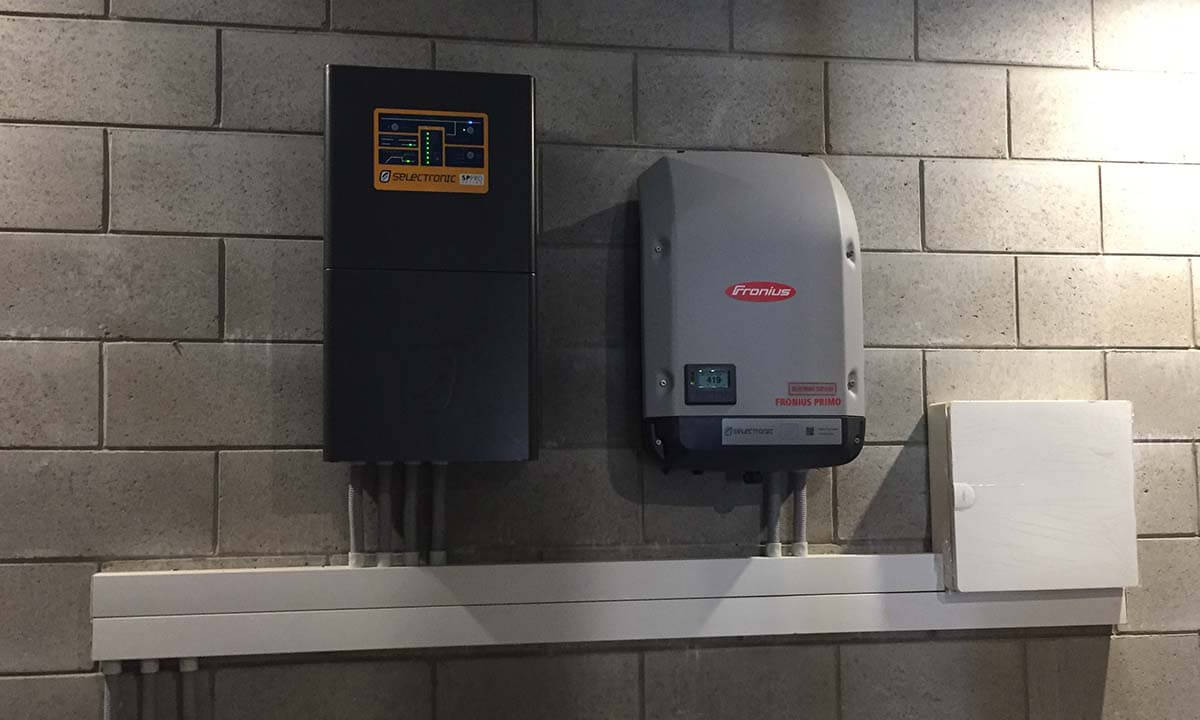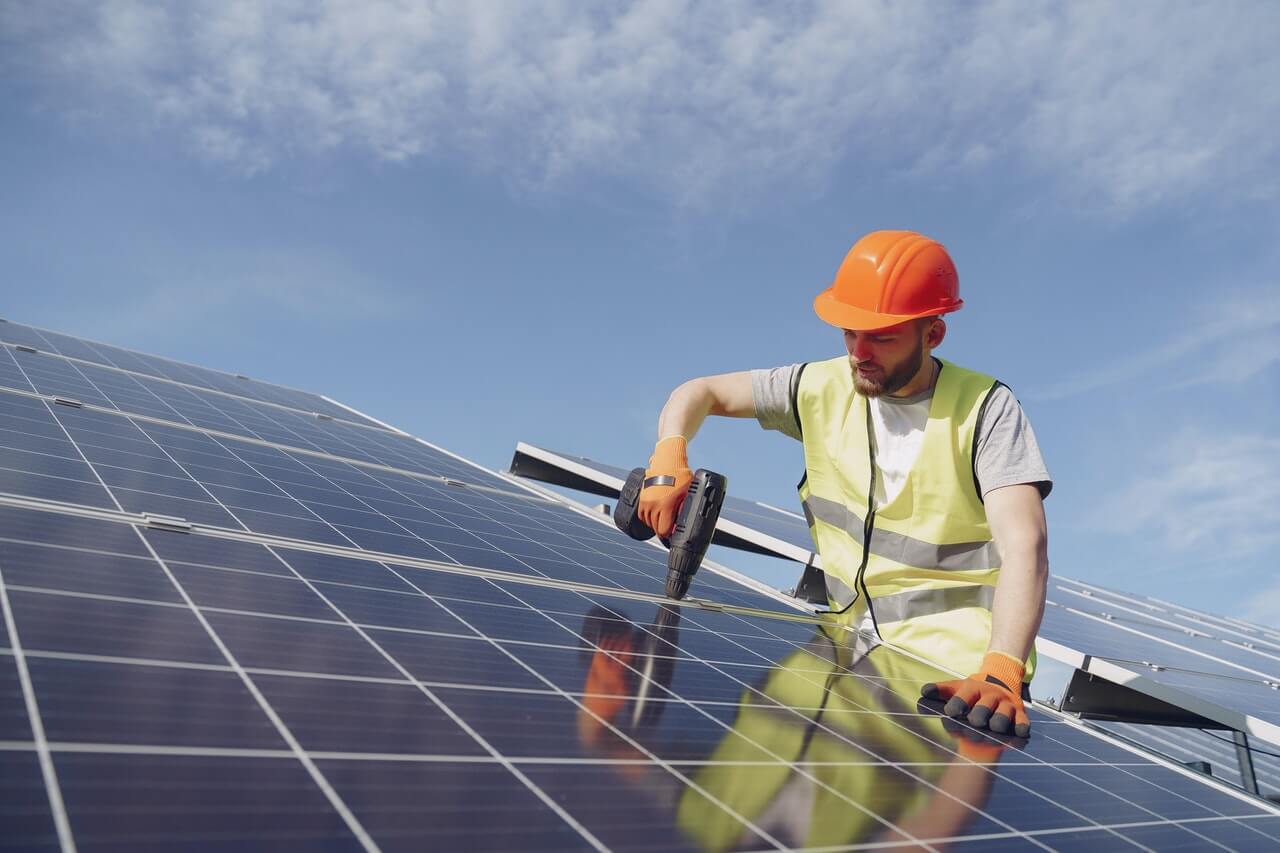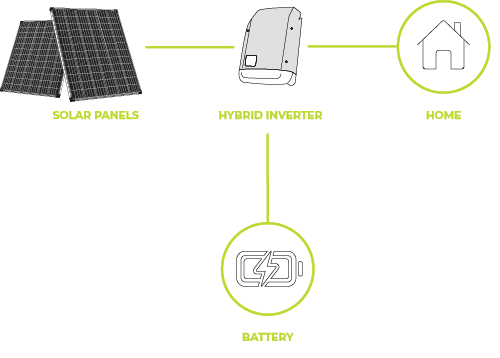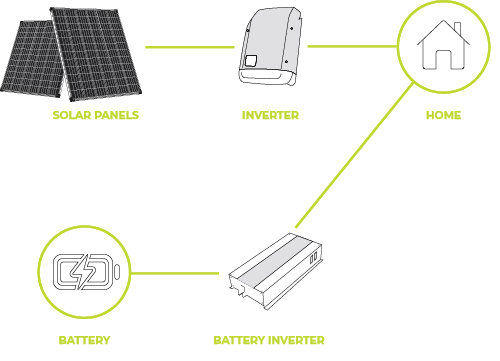As of March 2024, Australia continues to lead globally in solar adoption, boasting the highest uptake of solar energy among nations worldwide. Approximately 30% of households in Australia have installed rooftop solar photovoltaic (PV) systems. According to recent data, surpassing statistics from November 9, 2021, over 3.5 million rooftop solar PV systems now illuminate homes and businesses across the country, showcasing a significant increase in solar installations over the past few years.
This trend has led to an increase of the demand for solar battery storage systems as more Australians are looking to take the next step in their solar journey and adopt a more self-sufficient lifestyle. Solar batteries provide some significant benefits to residential and commercial solar systems and are becoming a consideration for those looking to install solar.


What is a solar battery and how it works?
Solar batteries are simply a storage that allows your unused solar electricity to be saved for later use, rather than sent back to the grid. They store the excess electricity generated from a panel array, boosting energy capacity and making power available for use at night time or on cloudy days when your system isn’t generating electricity. It gives you greater control over your everyday energy uses and supply.
See the below video to get an easy guide to the basics of how battery storage systems work.
Pros and Cons of installing a solar battery
Once you understand what a solar battery is and how it works in solar energy systems along with solar panels, you may now wonder if installing batteries is a good investment. As with everything in life, there are advantages and disadvantages. Let’s have a look at some of the top pros and cons of implementing a solar battery system.


Pros
- Independence of your energy
Utilising a Solar battery means you will benefit from independence in your energy usage. You will no longer need to rely on energy companies to provide you with energy in times when solar is not available.
- Protects you from outages
You may have experienced a power outage at least once in your life. In this event, you can have assurance that your electrical appliances will continue to receive power supply from your backup power stored in the batteries despite the grid being down.
- Better for the environment by reducing carbon footprint
Electricity from the grid is created by burning fossil fuels which produces CO2 emissions and greatly contributes to environmental issues. However, solar power is completely carbon-free. Having a solar energy storage system will reduce your carbon footprint significantly since you can get energy supply from your batteries rather than drawing power from the grid.
Cons
- High cost
It is true that battery storage is quite expensive upfront and has a relatively long pay-back period, so it might not always make financial sense to install an energy storage system. Depending on your needs and goals, solar batteries can run from $2,000 to over $10,000. A solar installer can include this within your quote, and recommend a battery that meets your requirements in size and warranty.
- Complexity
You may be concerned that designing and installing batteries on top of your solar PV system increases the complexity in management and the possibility of things going wrong. At the design and installation stage, it’s crucial to size the battery system correctly for the requirements, as well as placing in the right location considering many different factors.
- Increased maintenance
Whereas solar PV systems are relatively easy to maintain, adding a battery system will increase maintenance requirements. However, it depends on the type of battery technology you are using. Although some types of batteries, like deep cycle lead-acid batteries, may need extra care to be taken, other more modern types of batteries such as lithium-ion are generally maintenance-free.

Choosing the right battery
Lithium Ion batteries are the leading technology for solar batteries due to their safety features, low maintenance and up to 15-year life expectancy. There are alternatives, but at the moment, Lithium-ion provides the most reliable package for solar system owners.
Solar batteries connect to your home through either AC or DC batteries. AC will connect directly to the switchboard and is typically used fitting to existing panel systems. DC Batteries will be connected through a hybrid solar inverter and is typically used when installed alongside a new solar panel system.
AC Coupled

DC Coupled

Solar Battery rebates
As mentioned above, the Australian Government offers generous solar battery rebates and incentives at a national and state level through various programs. With the implementation of such financial support, the current ROI on a battery-ready solar installation is approximately 2-3 years and is projected to be a more cost-effective solution with innovating battery technology on the solar market.
- Victoria: Solar Homes Program
The Solar Homes Program is supporting eligible Victorian households to install a solar battery, by providing a point of sale discount up to a maximum of $4,174. Interest-free loans are not available under the solar battery rebate. For more information about this program, go to Solar Victorian.
- New South Wales: Smart Home Battery Scheme
If you’re a homeowner in the Hills District of Sydney, the Smart Home Battery Scheme will save you up to $4,000 when you buy and install a solar power system and solar battery. There is also a solar battery loan offer that helps homeowners in the Hunter region access interest-free loans to install solar battery systems. Get more information here.
Should you invest in solar batteries in 2024?
In conclusion, while batteries can provide you a range of benefits that can ultimately save you money and contribute to a more sustainable environment, whether installing a solar battery system is going to be worth it or not really depends on various internal and external factors. To make the best decision that can be beneficial to your energy consumption and budget, you should assess your energy needs before investing in batteries. There’s no point buying more capacity than you can use—surplus electricity should instead be fed into the grid for a profit. Having a high-quality solar installation that fits your needs and budget and the surrounding environment will be also extremely crucial to increasing solar system efficiency and electricity savings.
Does it sound complicated and overwhelming? Tesla Electrical will provide you with a personalized guide as to when it is the right time to install battery technology and what products to use. In the meantime, we recommend having a solar Installation that is battery-ready using the technologies that we recommend on our products page.
Article Updated March 2024







